Africa is home to many musical legends who have made their mark in the world.
The 1970s was a decade of great change for African music. With the rise of African independence movements, a new generation of African musicians began to emerge.
Many of them were pioneers of different African music genres, including jazz, rock, reggae, and R&B which has become part of what is called the authentic African sound.
Here are some African music artists of the 1970/80s who have given the continent amazing music to listen to.
- Evi Edna Ogholi
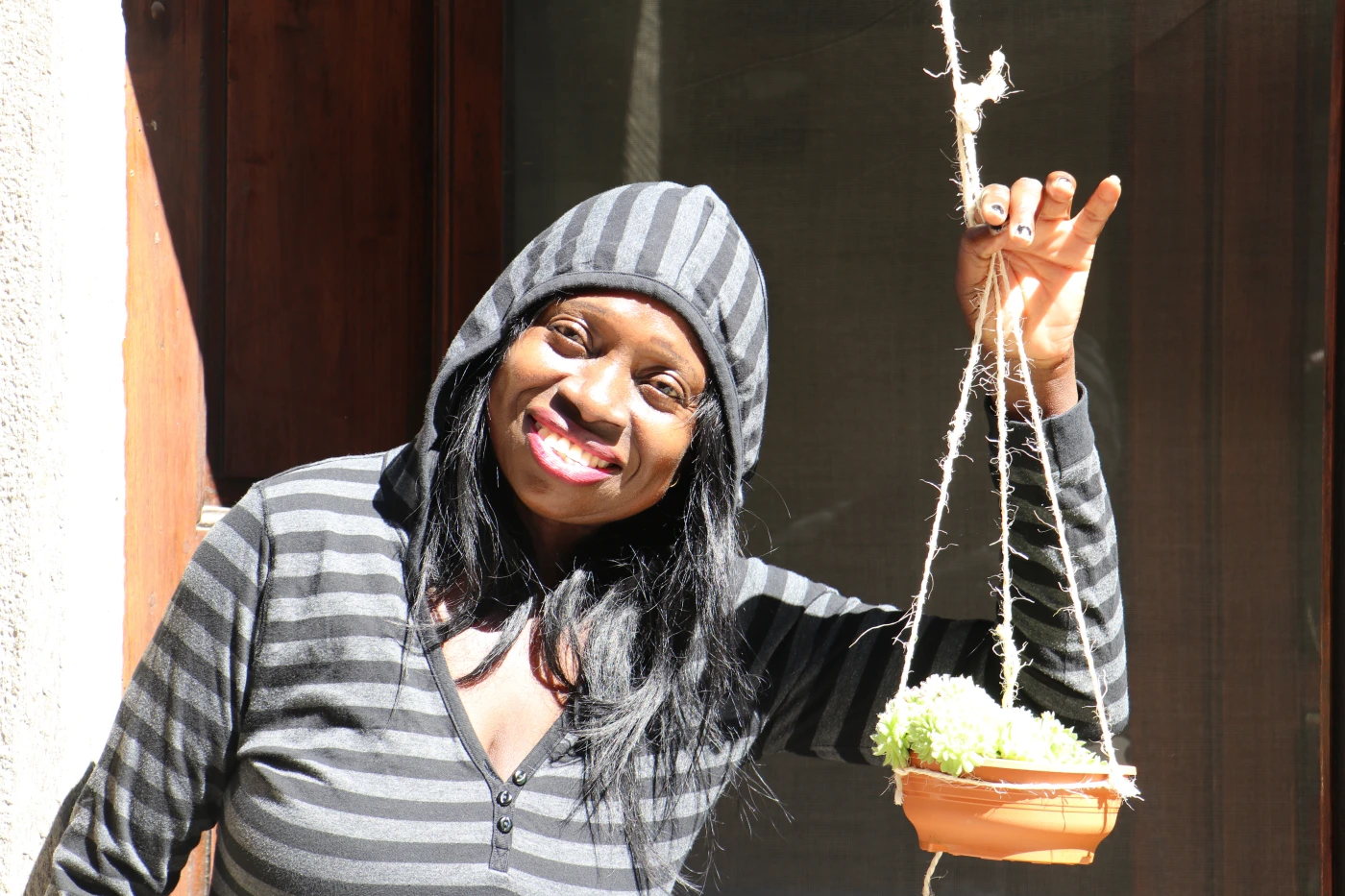
In the 1980s, during the golden age of Nigerian reggae and amidst a scene dominated by men, Evi-Edna Ogholi emerged as a superstar who was just as prolific as any of her contemporaries.
From 1988 to the mid-90s, it was a sure bet that when the cake was wheeled out at any child’s birthday party, the DJ would play one particular song, “Happy Birthday” by Evi Edna Ogholi.
This classic record cemented Ogholi’s superstar status who in 1985 left her home state of Delta to pursue a career in music. She was barely out of secondary school and 20 years old when she made such a bold move.
During her active years, the Reggae singer scored a number of great hits and best-selling albums. In 1987 she released her first album, “My Kind of Music”, which was a huge success. She went on to release several other albums such as “On The Move”, “Happy Birthday”, “No Place Like Home”, “Burstin Loose” and “Step by Step”.
By the age of 25, she was a Nigerian household name, and her first two albums, along with Step by Step, are considered her most popular releases and reportedly went platinum.
She’s credited as Nigeria’s first woman reggae musician, often called Nigeria’s “Queen of Reggae” and a master guitarist who is known for singing in her Isoko dialect.
Today, Ogholi lives in Paris and has recently started performing and writing again. In 2018, she released the album “Peace in the World”, which incorporates jazz into her original reggae compositions.
- Youssou N’dour

Youssou N’dour is a famous Senegalese singer, songwriter, composer, actor, businessman, and politician.
Throughout his career, he was known for singing mainly in Wolof, the Senegalese national language. He addressed issues important to the survival of his audience such as drought, Senegal’s economic situation, apartheid, slavery, and urban and international migration by people in search of a better life.
He also sang about the beauty and power of Senegalese women and the importance of culture in forming social values and principles, not forgetting his enchanting tunes about love and the hearts broken.
He first joined the Star Band de Dakar, in Senegal. A few years later, he left them and formed his new band, la Super Etoile de Dakar. Soon, many Senegalese were dancing to the rhythm of the Super Etoile and Youssou N’Dour’s name and talent were news.
N’Dour was a key figure in the multicultural mbalax musical style of the late ’70s and early ’80s, and he gained an international following in the late ’80s that further blossomed with releases like 1994’s “The Guide (Wommat)”, which yielded his biggest hit, the Neneh Cherry collaboration “Seven Seconds” and 2004’s “Egypt”, which earned him a Grammy Award.
- Miriam Makeba
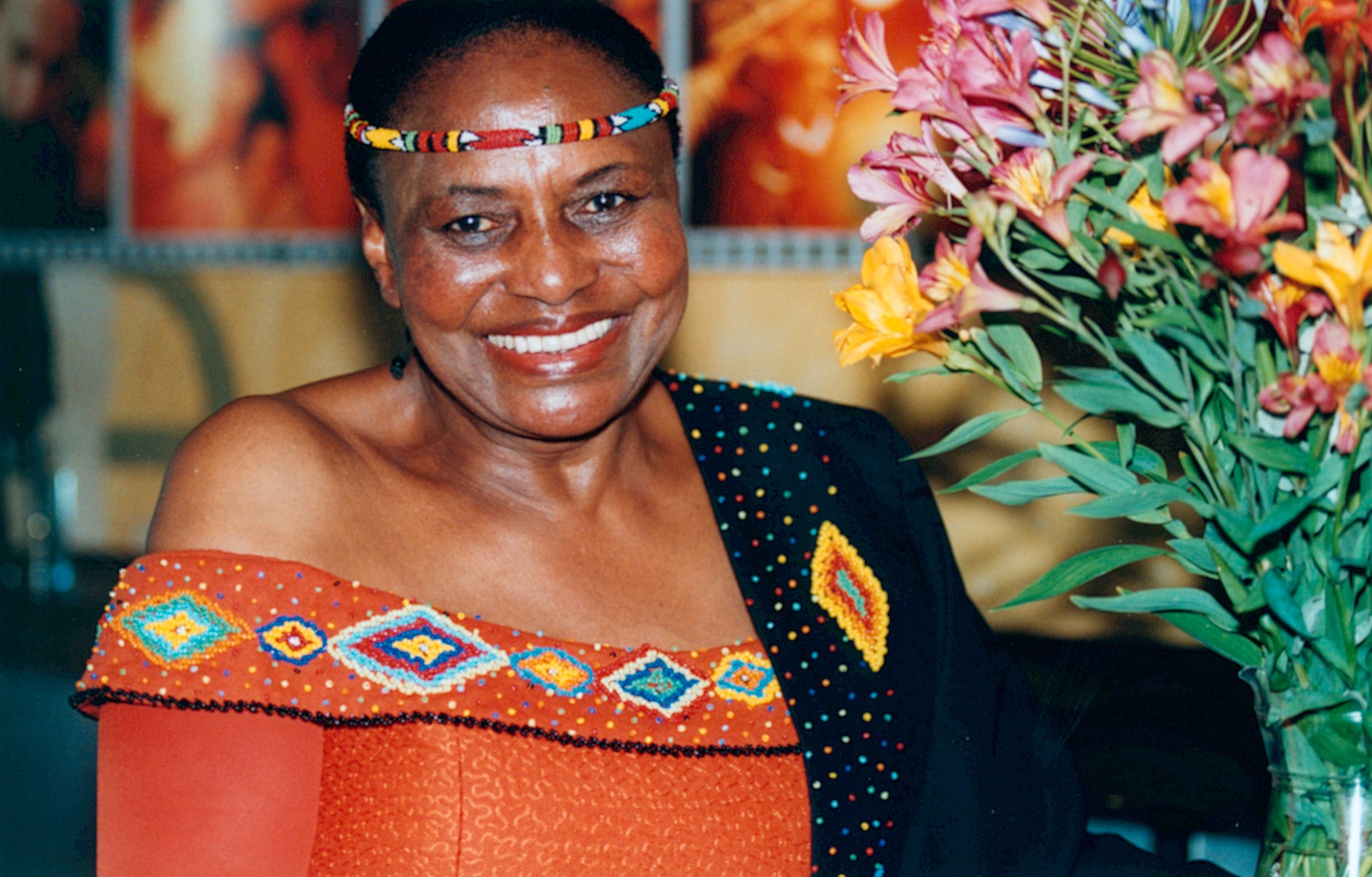
Born on March 4, 1932, in Johannesburg, Zenzile Miriam Makeba, affectionately known as Mama Africa, was a South African singer, songwriter, actress, United Nations goodwill ambassador, and civil rights activist.
Associated with musical genres including Afropop, jazz, and world music, she was an advocate against apartheid and white-minority government in South Africa.
Her vocal talent had been recognized when she was a child, and she began singing professionally in the 1950s, with the Cuban Brothers, the Manhattan Brothers, and an all-woman group, the Skylarks, performing a mixture of jazz, traditional African melodies, and Western popular music.
After being exiled from her home country, Makeba moved to the United States, where she achieved massive success with the release of several albums and songs, her most popular being “Pata Pata” (1967).
After apartheid was dismantled in 1990, Makeba returned to South Africa. She died of a heart attack during a 2008 concert in Italy.
Along with Belafonte, she received a Grammy Award for her 1965 album “An Evening with Belafonte/Makeba” and is recognized all over the world for her signature sound and stage performances.
Makeba made 30 original albums, in addition to 19 compilation albums and appearances on the recordings of several other musicians.
Her songs, include Malaika, Mbube, A Luta Continua, and Soweto blues, among others.
- Kanda Bongo Man
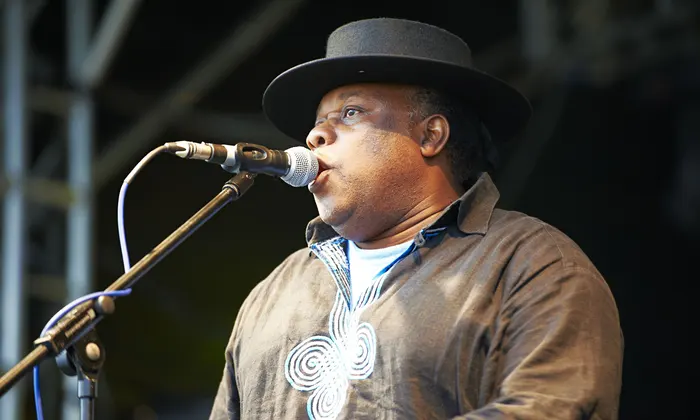
Kanda Bongo Man is one of the giants of African popular music. Hailing from the Democratic Republic of Congo, his infectious brand of Congolese Soukous, the popular guitar music of Central and East Africa, appeals to audiences worldwide.
Kanda Bongo Man is credited as being one of the pioneers of modern Soukous from the Congo (formerly Zaire). With his high-tenor vocals swinging between lyrics in Lingala and French, he sparked dancing in audiences around the globe.
Kanda is the man who gave the world Kwasa Kwasa, the infectiously charged Congolese dance style. He has performed throughout the continent of Africa, Australia, Europe, the Middle East, Canada, and the USA.
His first solo albums, “Iyole” in 1981 and “Djessy” in 1982, were hits.
- Angelique Kidjo
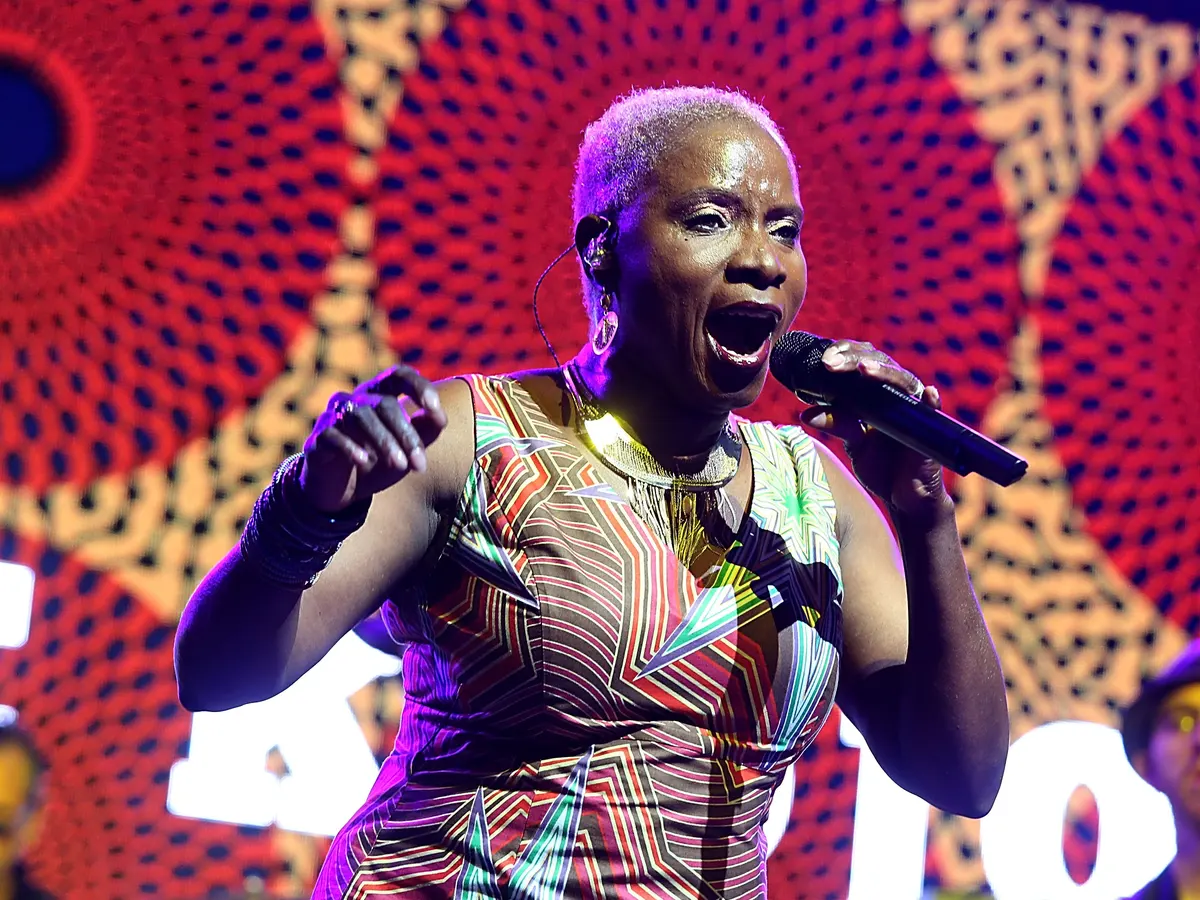
Afro-funk, reggae, samba, salsa, gospel, jazz, Zairean rhumba, zouk, and makossa are combined through the music of soulful Benin-born, Paris-based vocalist Angélique Kidjo.
Since the release of her self-produced debut solo album, “Pretty”, in 1988, Kidjo has been embraced by the international press. Her albums have been strengthened by contributions from top-notch guest musicians and producers.
Her first performing experience was as a six-year-old actor-dancer in her mother’s theatre troupe. From that point onwards, music became her sole passion. Before her twentieth birthday, she was one of Benin’s few professional female vocalists.
Kidjo’s fame continues to grow globally, particularly during the Grammy season. Nominated for the Grammy Awards in the US 14 times since 1995, she lifted her first in 2008 and went on to win Best World Music Album in 2015, 2016, 2020, and 2022 (when the title changed to Best Global Music Album).
Altogether, Kidjo has released seventeen albums, several hit singles, videos, and a soundtrack for movies, jingles, and documentaries.
- Hugh Masekela
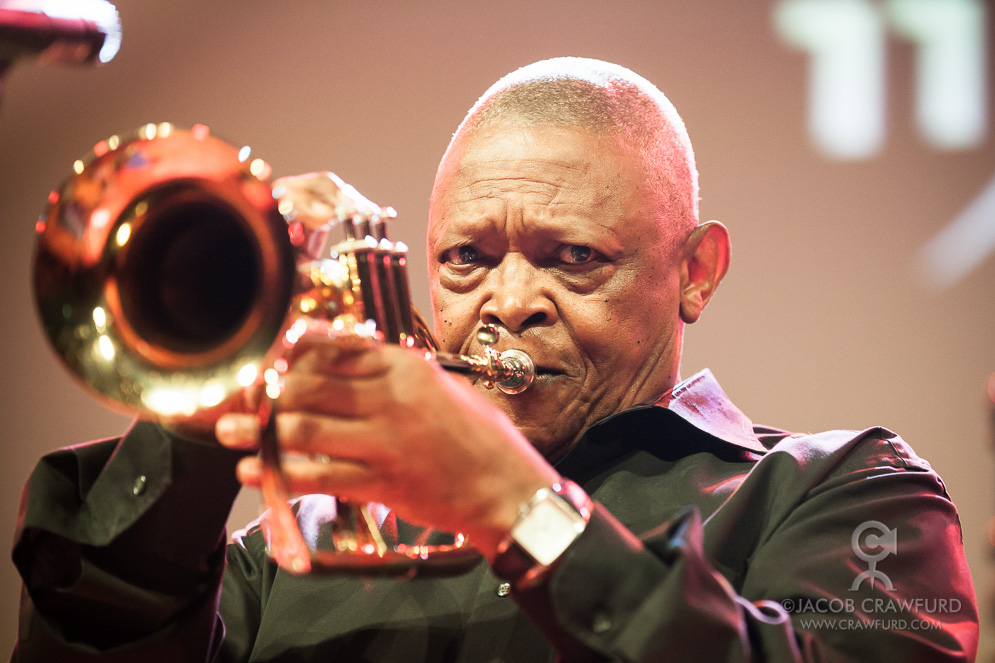
Hugh Masekela was a world-renowned flugelhornist, trumpeter, bandleader, composer, singer, and defiant political voice who remained deeply connected at home, while his international career sparkled.
He was born in the town of Witbank, South Africa in 1939.
At the age of 14, the deeply respected advocator of equal rights in South Africa, Father Trevor Huddleston, provided Masekela with a trumpet and, soon after, the Huddleston Jazz Band was formed.
Hugh released hit pop jazz tunes, “Up, Up and Away” in 1967, and “Grazing in the Grass” in 1968. In 1967, he appeared at the Monterey Pop Festival. He was later featured in the film Monterey Pop. Hugh Masekela’s Grazing in the Grass was one of his best tracks.
The popular entertainer died in the early morning of 23 January 2018 from prostate cancer at the age of 78 in Johannesburg.
- Brenda Fassie
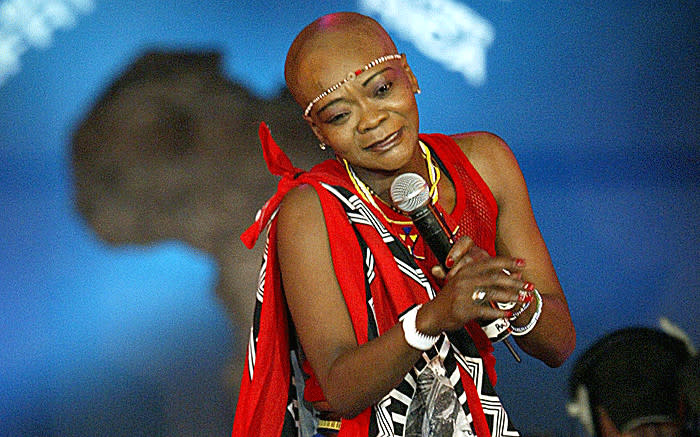
Brenda Nokuzola Fassie is a South African singer, dancer, songwriter, and activist.
She is famously known as the “Queen of African Pop”, the ‘Madonna of the Townships” or The Black Madonna. She is a famous musician whose music lyrics resonate deeply with the people of South Africa.
Born November 3, 1964, in Langa at Cape Town, Brenda started her musical career at a very tender age. She began singing with her mother as an accompaniment. At the age of five, Brenda already had tourists that paid to hear her sing. Later, she set up her band, the Tiny Tots.
After singing background vocals for other artists, Fassie broke out with the group Brenda & the Big Dudes with which she recorded her biggest hit in 1986’s “Weekend Special.”
In the late 1980s, she became a solo artist and began working with the music producer Sello “Chicco” Twala. She released her hit album “Too Late for Mama” which included the controversial song “Black President”. The song was banned in apartheid-era South Africa.
Since 1996 she had released several solo albums like “Now Is The Time”, “Memeza” (1997, the best-selling album in South Africa), and “Nomakanjani?”. Most of her albums became multi-platinum sellers in South Africa.
Brenda died on May 9, 2004, at age 39.
- Salif Keita
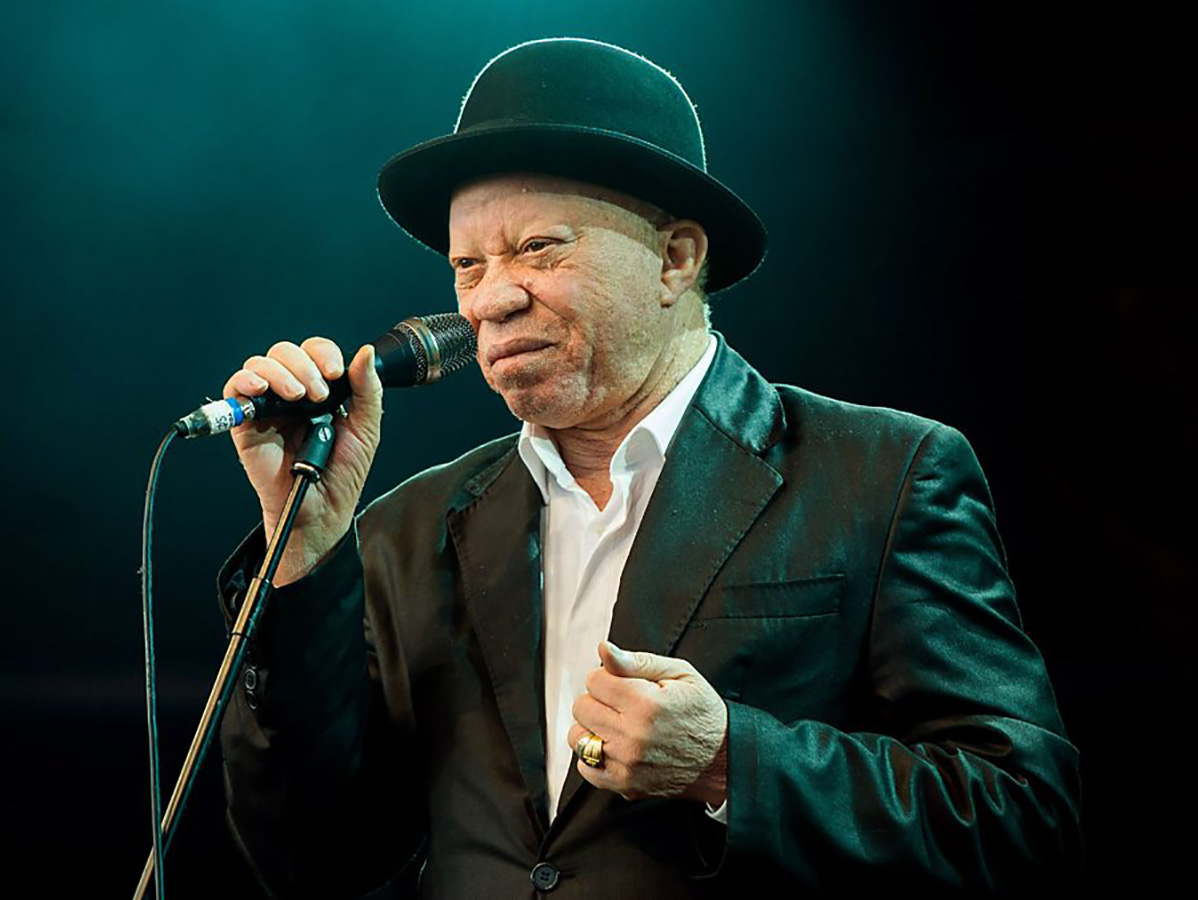
A master of West African rhythms and credited as one of the founders of the Afropop genre, Salif Keita is world renowned for his unforgettable live performances, soaring vocals and emotionally-fueled songs.
Born in Mali, West Africa in 1949, Salif Keita comes from a noble family and is a descendant of Sunjata Keita, who founded the Mali Empire in 1240.
Culturally rejected as a child for being an albino, Keita’s talent and determination eventually led him to become known as the “Golden Voice of Africa.”
Albums like 1987’s “Soro”, 1990’s “Amen”, and 2002’s “Moffou” were critical and commercial successes that combined Western sounds of jazz, funk, and pop with West African traditions.
Keita remained a creative force in the studio, returning with late-career highlights like 2010’s “La Différence” and 2018’s “Un Autre Blanc”, after which he announced his retirement from recording.
- Lucky Dube
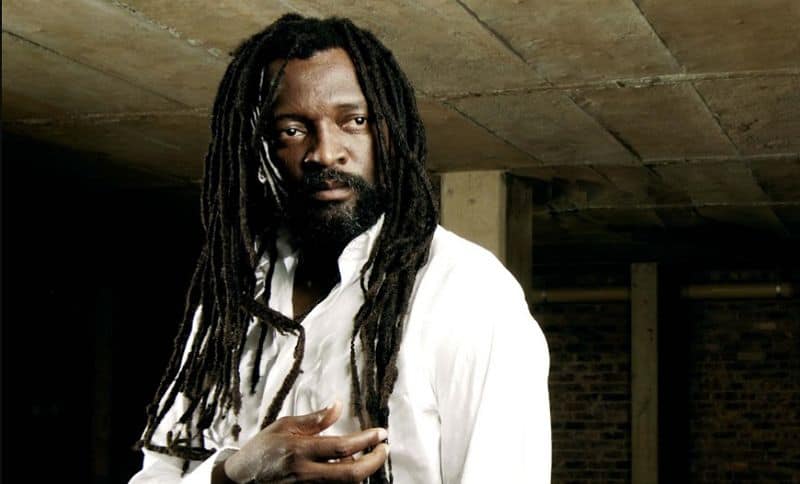
While successful reggae artists have traditionally hailed from the Island of Jamaica, over the decades of the 1980s and 1990s South African native Lucky Dube delivered some of the most conscious and substantive roots reggae songs to hit the airwaves.
Dube became the best-selling artist in all of Africa during the 1980s and ’90s and gained popularity in North America, the Caribbean, and Europe.
Lucky Dube moved to reggae in 1984. His earliest attempts with the newly adopted style were met with strong opposition by the then-all-white South African government, and his first reggae album, “Rasta Never Die” was banned from radio airplay.
Without notifying his record label, Dube re-entered the recording studio and recorded a second reggae album, “Think About the Children”. The album became a major hit and achieved gold record status.
Dube’s third reggae album, “Slave”, was released and let off massive hit singles: “Slave,” “I’ve Got You Babe,” and “Back to My Roots,” which led to a record-breaking sold-out performance in Johannesburg of over 50,000 people.
One of his biggest awards was his being named “Best Selling African Recording Artiste” at the World Music Awards.
Sadly, on October 18, 2007, at the age of 43, Lucky Dube was murdered in Rosettenville, South Africa.
- Fella Kuti
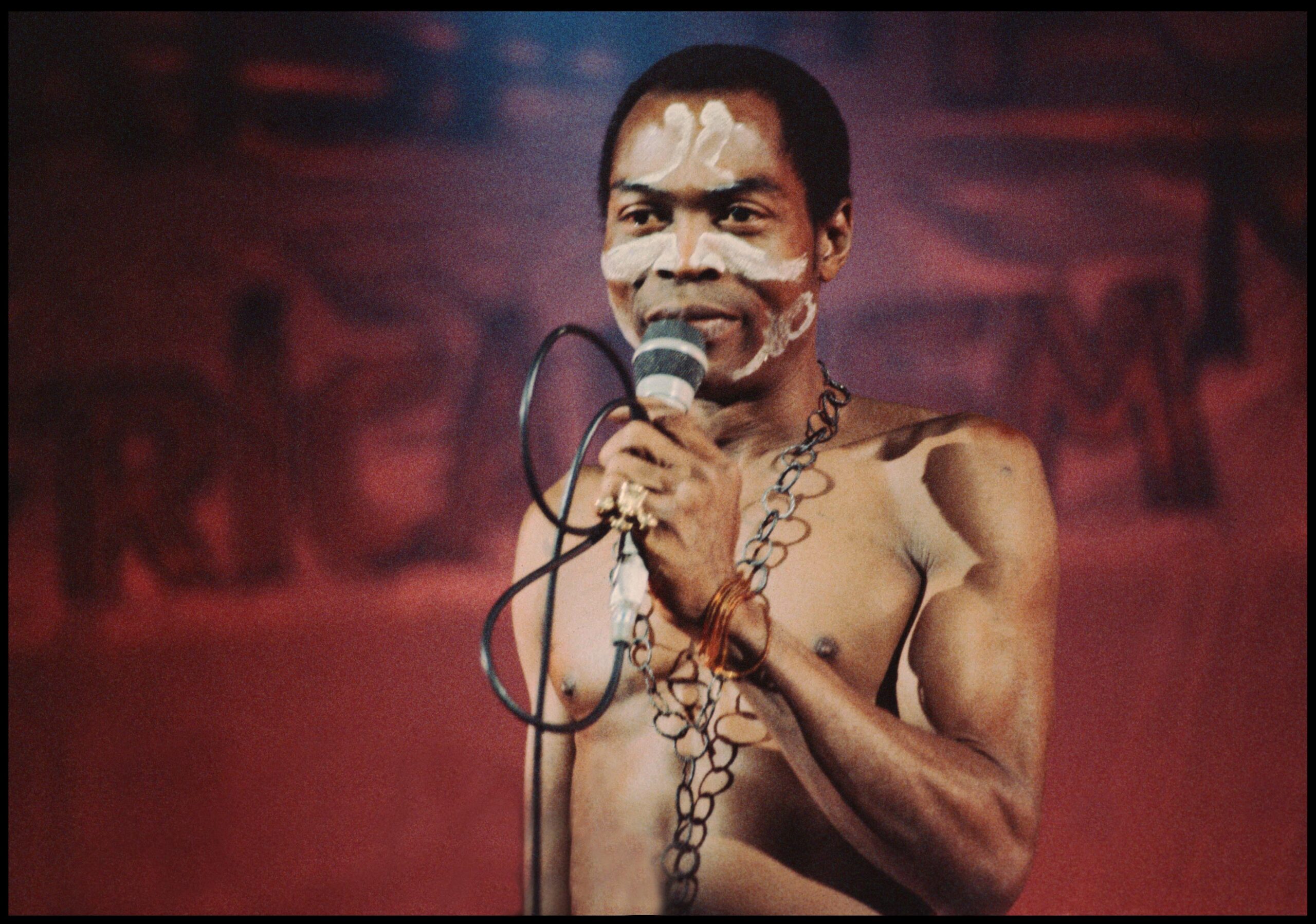
Musician and political activist Fela Kuti was born Olufela Olusegun Oludotun Ransome-Kuti on October 15, 1938, in Abeokuta, Nigeria.
Renowned for his high-octane performances, Fela Kuti is acclaimed to be the greatest African artist to have ever lived. He was a multi-instrumentalist, musician, political activist, composer, and the pioneer of the music genre known as Afrobeat. He was popular for singing in Yoruba his native tongue and Pidgin English which could be enjoyed by people all over Africa.
In 1963, Kuti formed a band called Koola Lobitos. He later changed the band’s name to Afrika 70, and again to Egypt 80. Beginning in the 1960s, Kuti pioneered and popularized his own unique style of music called “Afrobeat.” Afrobeat is a combination of funk, jazz, salsa, Calypso, and traditional Nigerian Yoruba music.
In the 1970s and ’80s, Kuti’s rebellious song lyrics established him as a political dissident. As a result, Afrobeat has come to be associated with making political, social, and cultural statements about greed and corruption.
He exhorted social change in his songs such as “Zombie,” “Monkey Banana,” “Beasts of No Nation,” and “Upside Down.”
Fela Kuti died on August 2, 1997 in Lagos.
Yvonne Chaka Chaka

Yvonne Chaka Chaka is a South African singer, songwriter, and entrepreneur who rose to fame in the 1980s and consequently earned the tag “Princess of Africa.”
The Soweto native discovered her singing gift early and pursued that gift from a young age through the throbbing 80s until she emerged as one of the key voices on the music scene back then.
In 1985, when she was just 19 years old, Phill Hollis of Dephon Records signed her up. She released her first debut album known as “I’m in Love with a DJ”, which sold about 35,000 copies.
She then released various albums such as “Yvonne Chaka Chaka motherland, Who is the Bose, Burning up, Sangoma, Thank you Mr. DJ, Power of Africa, Be proud to be African, Who’s got the power, Kwenzenjani”, among others.
Yvonne Chaka Chaka is married to Dr Mandlalele “Tiny” Mhinga and the couple is blessed with four sons.



